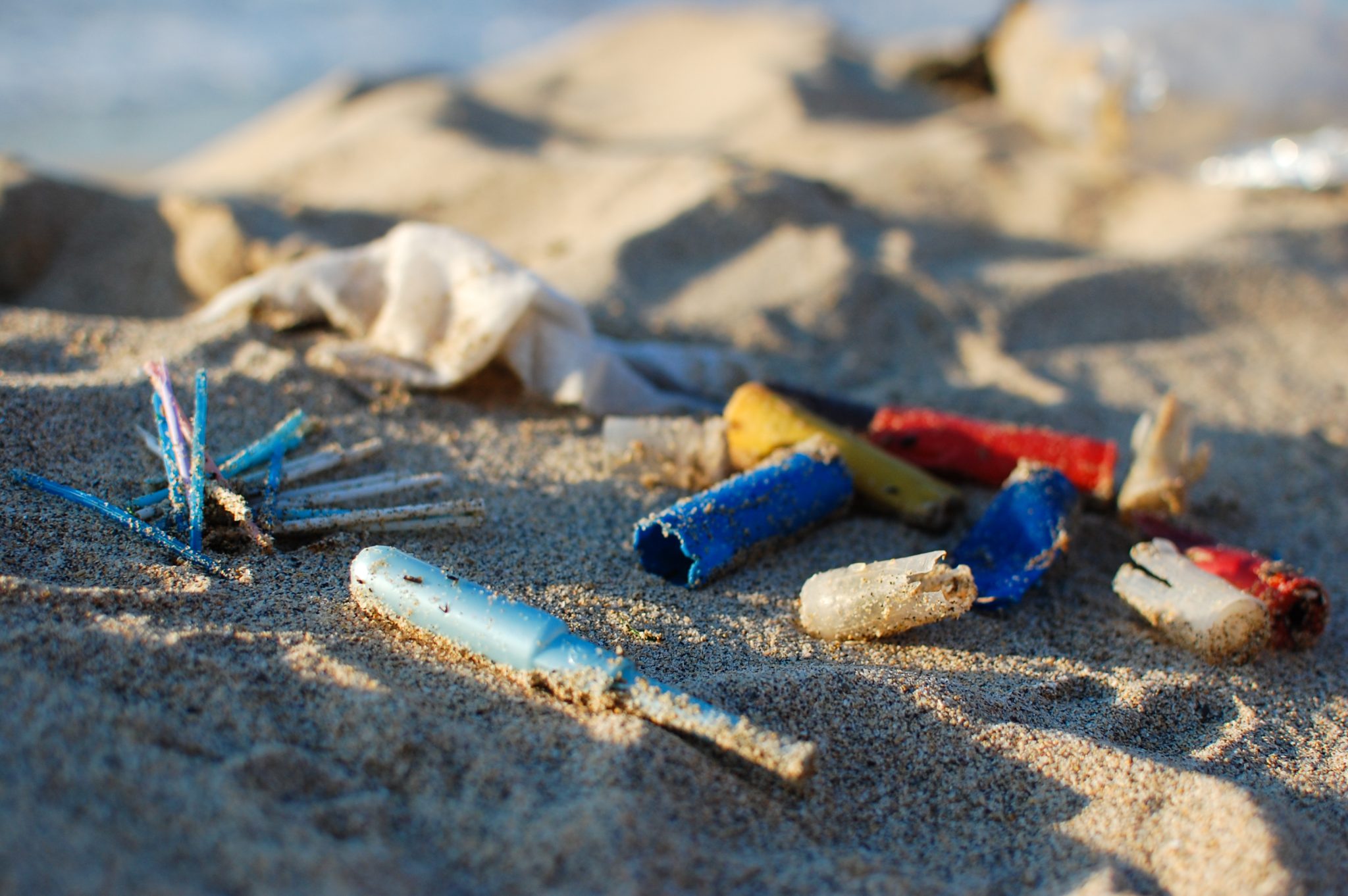Marine Life & Conservation
Marine Conservation Society to take legal action over ocean sewage spills

 The Marine Conservation Society is announcing joining as co-claimant in a legal case against the UK Government’s Department for Environment, Food and Rural Affairs (DEFRA) to protect English seas from sewage dumping.
The Marine Conservation Society is announcing joining as co-claimant in a legal case against the UK Government’s Department for Environment, Food and Rural Affairs (DEFRA) to protect English seas from sewage dumping.
The legal case seeks to compel the Government to rewrite its Storm Overflows Discharge Reduction Plan 2022, impose tighter deadlines on water companies and redevelop the Plan to effectively apply to coastal waters which are, currently, almost entirely excluded.
Sandy Luk, Marine Conservation Society CEO: “Untreated sewage is being pumped into our seas for hundreds of thousands of hours each year; putting people, planet and wildlife at risk.
We’ve tried tirelessly to influence the UK Government on what needs to be done, but their Plan to address this deluge of pollution entering our seas is still unacceptable. We owe it to our members, supporters and coastal communities to act, which is why we’ve joined as co-claimants on this case. We’re out of options. Our seas deserve better.”
Launched and funded by the Good Law Project, the Marine Conservation Society will stand as co-claimants on the case with Richard Haward’s Oysters, and surfer and activist, Hugo Tagholm.
Before reaching this point, the charity responded to a government consultation in March 2022 and met with DEFRA to express concern. In August 2022, the charity wrote an open letter to DEFRA outlining the ways in which the proposed Storm Overflow Discharge Reduction Plan fails to protect the environment and public health from dumping raw sewage into the sea. However, the Plan hasn’t been amended and still fails to adequately address water companies’ excessive reliance on storm overflows and the harm their heavy use causes to our ocean.
The plan virtually excludes most coastal waters (except for bathing waters) either directly or indirectly, with some types of Marine Protected Areas and shellfish waters totally excluded. 600 storm overflows are not covered at all by the Plan and will continue to – completely legally – be able to dump uncontrolled amounts of sewage directly into English seas and beaches. What’s more, the Plan lacks all urgency – with long-term targets set for 2050, and the earliest, most urgent targets not to be met until 2035.
Meanwhile, Marine Conservation Society analysis finds that raw sewage is pouring into the ocean at an alarming rate. In total, there are at least 1,651 storm overflows within 1km of a Marine Protected Area (MPA) in England. These overflows spilt untreated sewage 41,068 times in 2021. Of these, almost half the overflows spilt more than 10 times in 2021, with an average of 48 spills for each of those overflows. Overall, in 2021, sewage poured into Marine Protected Areas for a total of 263,654 hours.
According to DEFRA’s own latest assessments, only 19% of estuaries and and 45% of coastal waters are at ‘good ecological status’, with none meeting ‘good chemical status’, and three quarters (75%) of shellfish waters failing to meet water quality standards.
Rachel Wyatt, Policy & Advocacy Manager for Clean Seas at the Marine Conservation Society: “Untreated sewage contains a cocktail of bacteria, viruses, harmful chemicals, and microplastics. It’s nearly impossible to remove microplastics and ‘forever chemicals’ once in the environment. Due to their persistence, with every discharge, these pollutants will continue to increase, meaning eventually they will pass – or may have already passed – a threshold of harm.”
In addition, it’s not just invisible toxins that are causing problems. In September this year at the charity’s annual Great British Beach Clean, sewage related pollution, such as wet wipes and sanitary products, were found on 73% of the beaches surveyed across England.
A new DEFRA report, Ocean Literacy in England and Wales, shows that 85% of people say marine protection is personally important to them. Yet this is being ignored.
Emma Dearnaley, Legal Director at the Good Law Project, said: “The Marine Conservation Society is at the forefront of tackling the ocean emergency and standing up for coastal communities impacted by climate change and pollution. We are delighted to have them on board as a co-claimant.
“Good Law Project will work closely with the claimants, including the Marine Conservation Society, to put forward the case for more ambitious and urgent measures to reduce sewage discharges by water companies. These sewage spills are threatening human health, biodiverse marine life and the fishing industry. We believe that taking legal action now is vital to help safeguard our coastal waters for generations to come”.
If the case is won, the Marine Conservation Society hopes to see the UK Government amend its Plan so that it meets the DEFRA Secretary of State’s legal obligations to protect the ocean and its inhabitants from raw sewage spills.
For more visit the Marine Conservation Society website.
Header image credit: Natasha Ewins
Blogs
Invitation from The Ocean Cleanup for San Francisco port call

6 years ago, The Ocean Cleanup set sail for the Great Pacific Garbage Patch with one goal: to develop the technology to be able to relegate the patch to the history books. On 6 September 2024, The Ocean Cleanup fleet returns to San Francisco bringing with it System 03 to announce the next phase of the cleanup of the Great Pacific Garbage Patch and to offer you a chance to view our cleanup system up-close and personal.
We look forward to seeing you there.
To confirm your presence, please RSVP to press@theoceancleanup.com
PROGRAM
Join The Ocean Cleanup as our two iconic ships and the extraction System 03 return to San Francisco, 6 years and over 100 extractions after we set sail, to create and validate the technology needed to rid the oceans of plastic.
Our founder and CEO, Boyan Slat, will announce the next steps for the cleanup of the Great Pacific Garbage Patch. Giving you a chance to view our cleanup system and the plastic extracted.
Hear important news on what’s next in the mission of The Ocean Cleanup as it seeks to make its mission of ridding the world’s oceans of plastic an achievable and realistic goal.
Interviews and vessel tours are available on request.
PRACTICALITIES
Date: September 6, 2024
Press conference: 12 pm (noon)
Location: The Exploratorium (Google Maps)
Pier 15 (Embarcadero at Green Street), San Francisco, CA
Parking: Visit The Exploratorium’s website for details.
RSVP: press@theoceancleanup.com
Video & photo material from several viewing spots around the bay
We look forward to seeing you there!
ABOUT THE OCEAN CLEANUP
The Ocean Cleanup is an international non-profit that develops and scales technologies to rid the world’s oceans of plastic. They aim to achieve this goal through a dual strategy: intercepting in rivers to stop the flow and cleaning up what has already accumulated in the ocean. For the latter, The Ocean Cleanup develops and deploys large-scale systems to efficiently concentrate the plastic for periodic removal. This plastic is tracked and traced to certify claims of origin when recycling it into new products. To curb the tide via rivers, The Ocean Cleanup has developed Interceptor™ Solutions to halt and extract riverine plastic before it reaches the ocean. As of June 2024, the non-profit has collected over 12 million kilograms (26.4 million pounds) of plastic from aquatic ecosystems around the world. Founded in 2013 by Boyan Slat, The Ocean Cleanup now employs a broadly multi-disciplined team of approximately 140. The foundation is headquartered in Rotterdam, the Netherlands, and opened its first regional office in Kuala Lumpur, Malaysia, in 2023.
Find out more about The Ocean Cleanup at www.theoceancleanup.com.
Marine Life & Conservation
SHARK MONTH ARRIVES AT ROYAL WILLIAM YARD, PLYMOUTH

A shark has been spotted approaching Royal William Yard in Plymouth, much to the surprise of swimmers, paddleboarders and onlookers.
With its distinctive dorsal fin cutting through the water, the sizeable shark swam along the coastline, before turning to head inland towards Firestone Arch at Royal William Yard. The appearance drew a crowd, who were captivated for more than an hour by the unusual sight – and it was all caught on video.
The shark is one of many expected sightings at Royal William Yard over the coming weeks… because today marks the start of Shark Month!
In reality, the ‘shark’ spotted along the Plymouth shoreline was actually a custom-made model, created by the team at Royal William Yard and sailed underwater by Caroline Robertson‑Brown from the Shark Trust, who donned scuba diving gear for the occasion.
The stunt took place to launch Shark Month in style and draw attention to the work of the leading international conservation charity, which is based in Britain’s Ocean City. Spectators were reassured that the water was safe and many entered into the spirit of the performance, swimming or sailing alongside the shark.
Shark Month will take place across Royal William Yard throughout July and will feature an extravaganza of art, entertainment and advocacy for everyone to enjoy. The packed programme of events starts with an art exhibition and ends with a trip on paddleboards with shark experts – with everything from a shark quiz to a Jaws screening in between.
Paul Cox, CEO of the Shark Trust, said: “There are often assumptions and misconceptions when it comes to sharks. This was certainly the case with the shark spotted at Royal William Yard! While the British coastline is home to many species of shark, this was not one of them. However, we’re thrilled it caught people’s attention, because seeing a shark is a special and memorable moment. That is precisely why we want to celebrate these incredible creatures, highlight the need for conservation, and ask for help to safeguard their future.”
For more information about Shark Month at Royal William Yard, visit the Shark Trust Website.
Images and video: Jay Stone
-

 Blogs2 months ago
Blogs2 months agoDiving With… Nico, Ocean Earth Travels, Indonesia
-

 News1 month ago
News1 month agoMurex Bangka Announce New Oceanfront Cottages & Beachfront Dining
-

 Blogs2 months ago
Blogs2 months agoA new idea in freediving from RAID
-

 Marine Life & Conservation1 month ago
Marine Life & Conservation1 month agoIceland issue millionaire whale hunter a licence to murder 128 vulnerable fin whales
-

 Marine Life & Conservation2 months ago
Marine Life & Conservation2 months agoThe Shark Trust Great Shark Snapshot is back
-

 News3 months ago
News3 months agoCharting New Waters; NovoScuba Goes Global with the Launch of their Revolutionary Dive Training Agency!
-

 Gear News1 month ago
Gear News1 month agoNew Suunto Ocean – a dive computer and GPS sports watch in one for adventures below and above the surface
-

 Marine Life & Conservation Blogs2 months ago
Marine Life & Conservation Blogs2 months agoBook Review: Plankton












